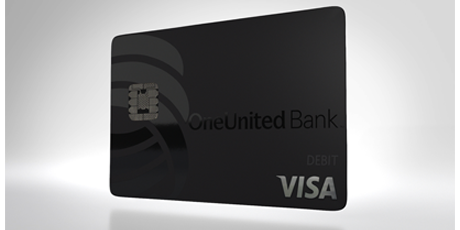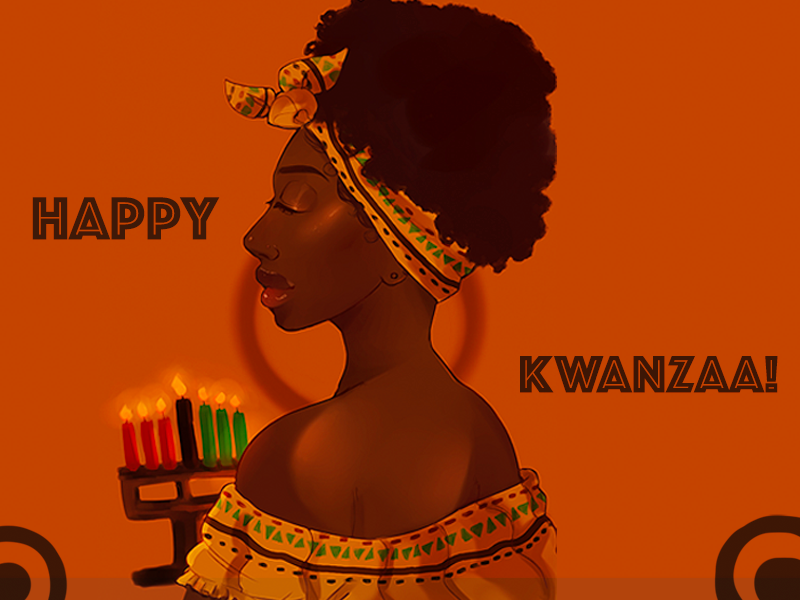Kwanzaa is a Pan-African holiday which celebrates family, community, and culture created by Dr. Maulana Karenga in 1966 and celebrated from December 26-January 1.
Kwanzaa was created to introduce and reinforce seven principles as the foundation for families, relationships, parenting, education, and communities. The seven days of the Kwanzaa holiday are organized around these seven principles.

Umoja: Unity
(December 26)
Umoja (oo-MO-jah), the first principle, means Unity. It stresses the importance of togetherness for the family and the community, which is reflected in the African saying, “I am We,” or “I am because We are.”
Unity means that everyone in our community is responsible for one another. This means that we must constantly look out for our family members and neighbors. It also means that we must be vigilant about protecting the rights of all oppressed people. We are all one!
Kujichagulia: Self-Determination
(December 27)
Self-determination is celebrated on the second day of Kwanzaa. Kujichagulia(koo-jee-chah-GOO-lee-ah) is to define and name ourselves, as well as to create and speak for ourselves.
Recently the New York Times launched the #1619Project to reframe America’s history, placing the consequences of slavery and the contributions of the Black community at the center of the country’s progress. At OneUnited Bank, the largest Black-owned bank in America, we celebrate our ability to research and tell our own stories and choose to define ourselves by our assets rather than our challenges.
Ujima: Collective Work and Responsibility
(December 28)
Ujima (oo-GEE-mah), Collective Work and Responsibility, reminds us of our obligation to the past, present, and future, and how that will affect the role we play in the community, society, and world.
As a community, we must make our neighbors’ issues our collective responsibility. By doing this, we can solve our struggles together. Each one, teach one.
Ujamaa – Collective Economics
(December 29)
Ujama (oo-JAH-mah) teaches us to support one another and to build businesses that benefit the whole community and helps it thrive. Opportunities include WeBuyBlack and the BlackWallStreet app, which identifies Black owned businesses nationwide.
The idea behind the #BuyBlack and #BankBlack movements is exchanging the money within the community first, providing jobs to in our community, increasing the average income, bringing more opportunity for more business endeavors and expansion and then spending that increased purchasing power in our community.
Nia: Purpose
(December 30)
Nia (NEE-ah) means purpose. It encourages us to look within ourselves and to set personal goals that are beneficial not only to ourselves, but also the community.
Recently, P Diddy held the Revolt Summit, which was decidedly hip-hop in spirit, but also featured a bevy of voter registrations tables, one-on-one “Office Hours” sessions with accomplished entrepreneurs, a job fair and an assortment of panels and work shops to both inform and empower those in attendance. According to The Root, the Summit had a purpose greater than an exaggerated concert.
To help on your quest to figure out and fulfill your life’s purpose, your money should also have a purpose. An old saying says, “Money goes where it’s treated best.”
Kuumba: Creativity
(December 31)
When we light the sixth candle of Kwanzaa for Kuumba (koo-OOM-bah), we celebrate how we can channel our creative energies to build and preserve a strong and vibrant community.
There are many artists in our community who are making a difference. They use their creative energy to dance, paint, create music and write books, blogs and columns that feed our souls with emotions and provide a vision of the world through a different lens.
OneUnited Bank celebrates creativity by showcasing works from local artists in our branches and using paintings from Addonis Parker to support our message.
Imani: Faith
(January 1)
Imani, or faith, focuses on honoring our best traditions. It draws upon the best things within us and helps us strive for a higher standard of life, for ourselves and for humankind.
Imani (ee-MAH-nee) is how we affirm our self-worth and learn to be confident that we can triumph in righteous struggles. Imani is about faith–primarily faith in ourselves.
This Kwanzaa, let’s support one another. If we build up our collective funds and strengthen ourselves and the community, we can really make a difference in our lives and our futures.


















